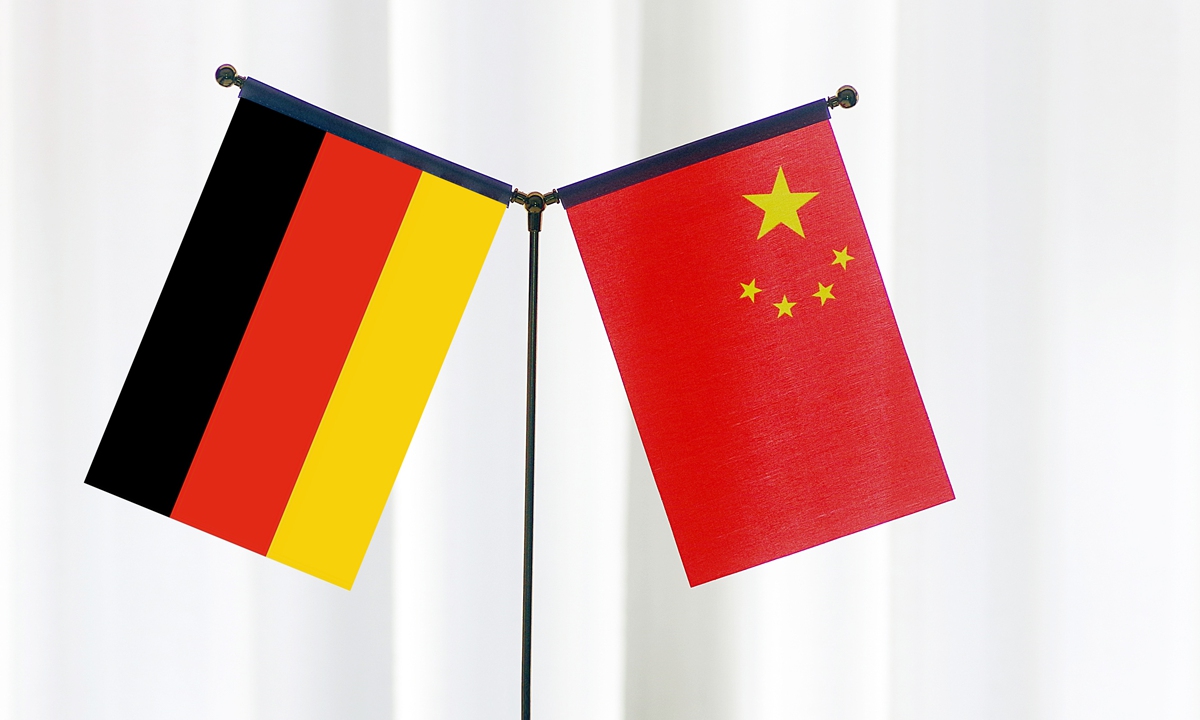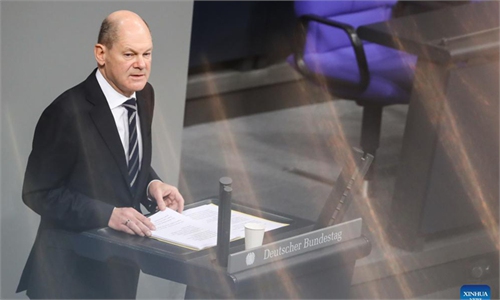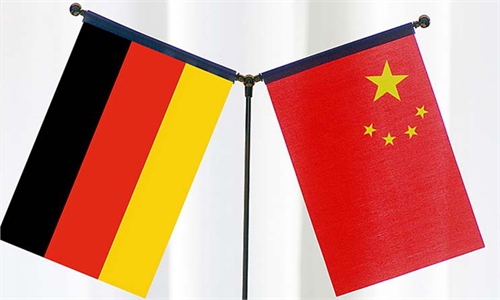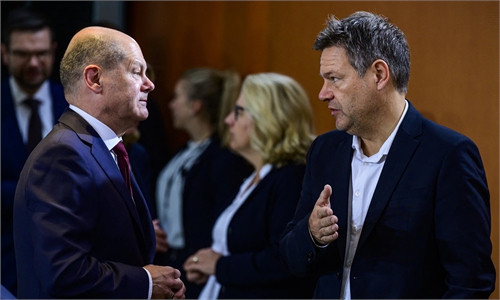
China Germany Photo:VCG
While German Chancellor Olaf Scholz is set to visit China on Friday, the German business community and scholars from China and Germany are expressing anticipation that the visit will inject stability and energy into facilitating trade and economic exchanges and further promoting China-Germany relations.
Chinese analysts said that some "noise" that hypes so-called worries about Germany's dependency on China would have a limited influence as long as Germany's coalition government sticks to a pragmatic stance for its own interests.
Some Western media and German politicians have been keen on hyping worries as well as opposition voices on Scholz's China visit in recent days. During a visit to Uzbekistan on Tuesday, German Foreign Minister Annalena Baerbock said that Germany's China policy "must change" and Germany needed to learn from its experience with Russia to never again be dependent on a country that did not share Berlin's values, German media reported.
Baerbock's remarks are the latest comments from German politicians to urge Scholz to be tougher on China on issues concerning values, especially human rights. After news of Scholz's visit to China was revealed, people from different fields in Germany showed mixed attitudes, with many from the business community praising Scholz's decision while some politicians pressed him to make Germany's concerns on security and human rights clear to China.
Against the backdrop of turbulence around the world, leaders from China and Germany, two major powers in the world, can have a face-to-face meeting about bilateral relations and their future development, and exchange views on heated topics. This will send a signal of stability not only to the regions but also the international community, and this is also why Scholz's visit to China is welcomed by more people, Jiang Feng, a research fellow at the Shanghai International Studies University, told the Global Times.
Maximilian Krah, a member of the German Alternative für Deutschland (AfD) in the European Parliament, told the Global Times that he hopes Scholz as German chancellor could prioritize Germany's economic interests, and further promote the Comprehensive Agreement on Investment to reduce inflation.
The deepening of economic, technological and trade cooperation between China and Germany is indispensable for Germany's development. Anti-China forces in Germany do not represent the interests of Germany, said Krah.
The visit is the first to China by Scholz since he took office in 2021, and the first visit by a leader from the G7 (Group of Seven) and EU since the COVID-19 pandemic.
A delegation of senior business leaders will also come to China along with Scholz, including the chief executive officers of Adidas, Deutsche Bank, Siemens, vaccine maker BioNTech, BMW and so on, media reported.
It is not surprising to hear some different voices in Germany due to the divergences inside the coalition government and some misunderstandings among the public toward China, Chinese analysts said.
Some politicians who lack experience on international affairs and have never been to China and bear a bias against China are hyping rifts with China especially on values to win more supporters domestically, Jiang said, noting that the case of foreign policies being disturbed by domestic politics has been a problem for Germany.
Baerbock, co-leader of the Green Party, has faced several rounds of criticism since she was appointed as foreign minister in November 2021. For example, some analysts said that Baerbock had focused more on "value-guided" policies, which differs from Germany's pragmatic way and may affect the country's own interests.
Jiang said that the coalition government has suffered in recent months as Germany’s leading position is under an unprecedented challenge as it is battling with the energy crisis with other countries in the EU, and having sour relations with some EU countries, for example, Poland.
Against this background, seeking stable relations with China and facilitating trade and economic exchanges not only benefits the two countries but will also be good for stabilizing China-EU relations, Jiang said.
There are many different voices toward China inside the coalition government - while Baerbock and German Minister for Economic Affairs and Climate Action Robert Habeck hope to lead China-Germany trade relations into competition with a tougher attitude toward China, voices to maintain engagement with China still have more support within the government, said He Zhigao, a research fellow with the Institute of European Studies, Chinese Academy of Social Sciences.
Decoupling from China is unrealistic for Germany since the Chinese market is among the footstones that laid the foundation of Germany's economic prosperity. Germany would finally get back to the right track on a rational China policy, He told the Global Times.
Krah from the European Parliament also noted that decoupling from China would serve only the interests of the US and damage Germany's own industry severely.
"This is not about democracy or human rights, it is about the future conflict between Washington and Beijing - a conflict I would like to remain absent from. We want to build up a multilateral relationship with all countries around the world to serve the German state's interests," said Krah.



